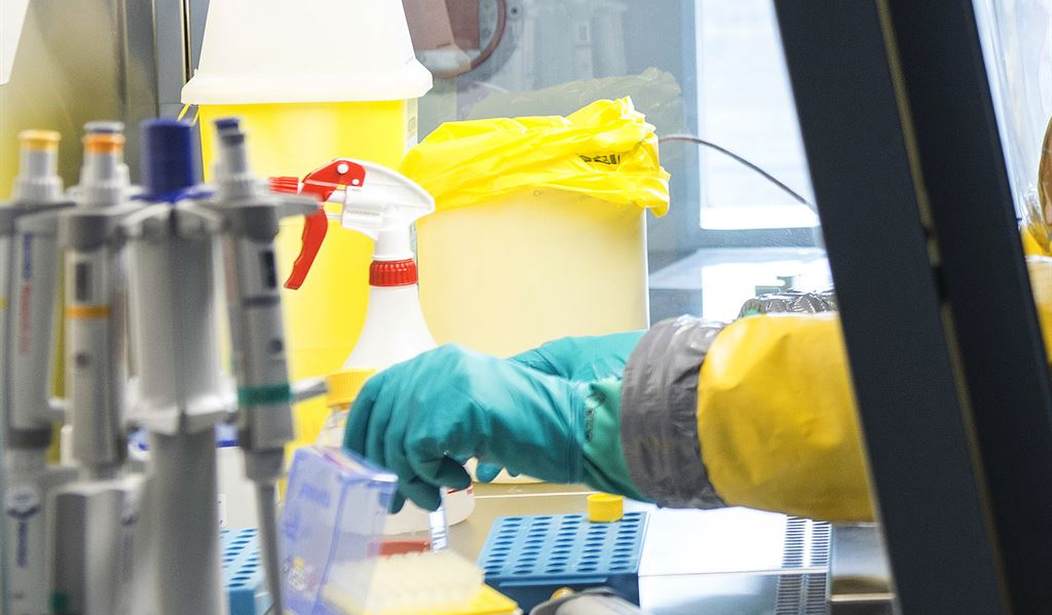We are already watching the angst building up on the left as the Supreme Court reconsiders the matter of affirmative action in the college admissions process. The standard objections are showing up in the media, claiming that the conservative majority on the Supreme Court will somehow institutionalize racism in the United States all over again if schools judge all applicants on the same basis without regard for the color of their skin.
But it’s not just the usual suspects in the liberal mainstream media sounding the alarm. They were joined this week by Stacy Farina and K Amacker of Howard University. Speaking up for the scientific community, the authors published a piece in Scientific American explaining why “scientists must stand for affirmative action and against scientific racism.” Wait a minute here. Did you say “scientific racism?” What exactly is that supposed to mean? Since it sounds rather “sciencey,” I suppose we’d better figure this out.
The Court has repeatedly ruled in favor of affirmative action in higher education, but in this case, Students for Fair Admissions is asking them to overturn Grutter v. Bollinger, which has upheld race as part of the admissions process since 2003. If overruled, affirmative action in admissions would be at risk at colleges and universities across the country, especially primarily white institutions that have historically excluded people of many racial identities due to discrimination and educational injustices. Affirmative action remains necessary to provide legal protection to consider race in admissions as part of these institutions’ efforts to create a diverse student population.
Scientists play a crucial role in assuring equitable access to colleges and universities. Education is fundamentally an issue of human rights, and affirmative action in admissions is one tool in a larger strategy to address social injustices and shape the future of scientific research. Yet white supremacy, whether systemic or interpersonal, is still deeply ingrained in society, leading to financial and social disadvantages for nonwhite students. As scientists, we must fiercely defend affirmative action, if we wish for equity in science and in U.S. society.
Reading further into the article, the authors rail against the idea that we have reached a “post-racism state” where other factors can be blamed for unequal outcomes in educational opportunity. They go on to describe scientific racism as being related to “centuries-old myths such as that people with darker skin are biologically less intelligent.” Interestingly, they also put forward the theory that “humans do not have biological races,” something that is becoming increasingly true with every generation. But it also kind of shuts down their own argument against ending affirmative action, doesn’t it? If there are no races, how is anyone being discriminated against?
The idea that race is a determining factor in intelligence or potential has thankfully gone the way of the dodo bird for the most part. A lack of opportunity is a far greater driver in terms of eventual success. People from poorer communities with failing schools and higher crime rates have the deck stacked against them to a greater degree, no matter the color of their skin, though it’s also true that such conditions are encountered disproportionately in majority Black and Hispanic communities.
But even that isn’t enough to stop the most driven and inherently brilliant or talented among us. One of my favorite examples is Black astrophysicist Hakeem Oluseyi. This guy was born in the opposite of the lap of luxury, growing up in multiple poor communities and being exposed to crime, drug trafficking, and everything else you would imagine. And yet he went on to earn three degrees in physics and one in mathematics, becoming one of the more famous and accomplished people in his field. (He is also the author of the amazing book, A Quantum Life: My Unlikely Journey from the Street to the Stars. Pick it up if you get the chance.)
Then there are people who were born with the “right” shade of skin in amazingly powerful families who had everything going for them and still somehow managed to chart a path to the gutters, in some cases literally. (*Cough* Hunter Biden *Cough*) If 81-year-old versions of Oluseyi and the First Son showed up with an application to be admitted to your school, I would hope that the choice would be a glaringly easy one, and the guy on his way to a life filled with crack whores and brothels wouldn’t be taking the first slot.
The point is, we definitely do not live in a world or even a nation (the United States) where there is any form of equality of outcomes. But what we’re really striving for is equality of opportunity. And using these sorts of glossy assumptions and accusations of institutional racism, to say nothing of “scientific racism,” isn’t helping matters. In fact, a policy that intentionally rejects some students while accepting others based not on the content of their character (or their intellect or past academic performance) but on the color of their skin is the real racism. And many Asian-American students have sadly experienced that reality first-hand since they are somehow left out of all of these racial calculations.








Join the conversation as a VIP Member